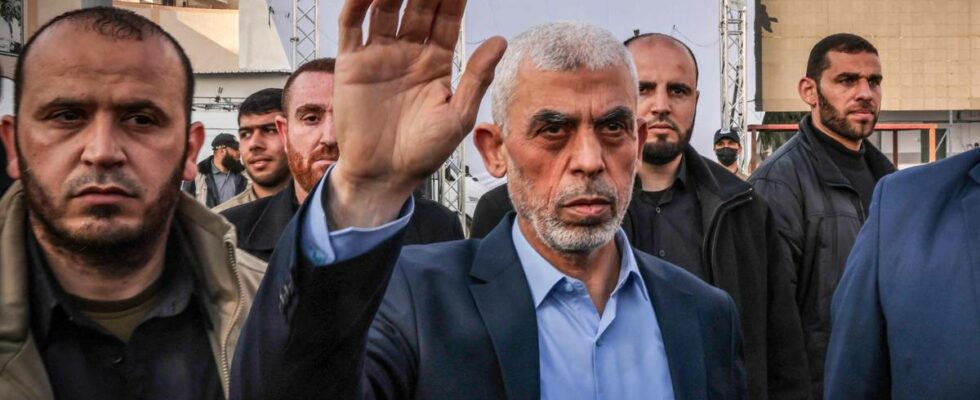Hamas’s top political leader was killed by Israeli forces in an incident in southern Gaza. Sinwar, known as the butcher from Khan Younis, is said to be one of the architects behind the terrorist attack on Israel on 7 October last year in which over 1,200 people were killed. Israel responded by entering Gaza in a war that has cost over 42,000 lives, most of them civilians. In this case you can read about: The future of Hamas A victory for Israel Resistance to Israel can be strengthened The future of Hamas The question is who will take over the leadership of Hamas now. According to Nadim Khoury, senior lecturer at Høgskolen i Inlandet, it may be that the Hamas leadership in Qatar will gain more power. Unlike his predecessor, Sinwar was based in Gaza and not in exile. It gave Hamas leadership in both the political and military wing of Hamas, Khoury believes. Sinwar is described as one of the architects behind the terrorist attack on 7 October. Photo: AP Dag Henrik Tuastad, senior lecturer in Middle Eastern studies, points out that regardless of who becomes the leader, it will not change the structure of Hamas, as the movement has a fixed political structure. It could change the power relationship between the political leadership that is in exile in Qatar and the military wing that is in Gaza. Tuastad believes that the next leader will be someone in exile, and points to Khaled Mashaal, who led the political wing of Hamas between 1996-2017. He is described by Tuastad as a cold analyst and political leader, someone who has been open about talking about a two-state solution. – There is no one who is considered a militant, even if he is not a pigeon. The Middle Eastern researcher points out that Mashaal has previously been in talks with Norwegian authorities. According to Tuastad, Khaled Mashaal is not popular among Iranians after he pulled Hamas’s forces out of Syria during the Syrian civil war. Photo: KHALED FAZAA / AFP – The question is partly what authority the parties will have over Hamas’ armed forces in Gaza. When it comes to the future of Hamas, Tuastad says that the movement will most likely survive. The question is whether they will stand together, or whether they will be a divided group, with an armed branch, and a religio-political branch under the Muslim Brotherhood. For Israel and a hard-pressed Prime Minister Benjamin Netanyahu, the killing of Sinwar is a victory. – Israel has settled the account with the person who carried out the worst massacre in history since the Holocaust, said Prime Minister Netanyahu. Khoury believes that Israel does not wish to weaken Hamas, but to wipe it out completely. Nadim Khoury, senior lecturer at Høgskolen i Innlandet. – They do it by killing both political and military leaders, killing tens of thousands of civilians and making Gaza uninhabitable. The message is clear: Hamas or anything similar will never be allowed to return to the Gaza Strip. According to Tuastad, Sinwar was not someone who had respect for civilian lives, whether Israeli or Palestinian. He therefore believes that there is a greater sense of truth for political solutions now that he is gone. A young Palestinian boy holds up a portrait of the slain Hamas leader Yahya Sinwar during a demonstration in Ramallah in the occupied West Bank against Sinwar’s murder. Photo: JOHN WESSELS / AFP Historian and Middle Eastern researcher Marte Heian-Engdal agrees. – It could force Hamas to be on the back foot, and theoretically it could soften their position at the negotiating table, she says. The ticket and the video of Sinwar’s last minute have been shared by the Israeli Defense Forces (IDF), and have led to full jubilation in Israel. Israelis celebrate in Jerusalem after the Israeli military confirmed that the Hamas leader was killed in Rafah. Photo: JOHN WESSELS / AFP According to Heian-Engdal, Sinwar was very powerful and popular in Hamas, which could be an advantage for Israel as he could have more easily anchored a ceasefire agreement in the organization. – It is also not true that Sinwar was the brake pad in the negotiations. Benjamin Netanyahu is also an important reason why there has not been enough ceasefire since November last year, she says. Marte Heian-Engdal is associate professor at the University of Oslo and assistant director at the Center for International Conflict Resolution (NOREF). Photo: Alf Simensen / news Tuastad believes that the fact that he died in battle, and was not hidden under a tunnel, can lead to the creation of myths around him. – Sinwar may have acted from an idea of becoming a kind of legend, a Palestinian Che Guevara, a symbol of the armed struggle, says Tuastad. Published 19.10.2024, at 08.56
ttn-69
What now for the Middle East? – news Urix – Foreign news and documentaries

